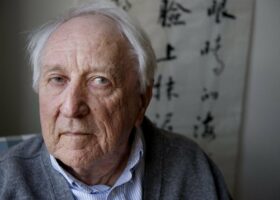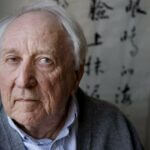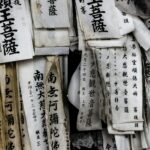
“Yellowface has its strengths. Kuang is terrific when parodying the loathsome impulses of social media and book reviewers. She also offers wisdom about the publishing industry and the inner life of a writer.”
In May of 2022, a young writer delivered a lecture concerning “Goodness, Beauty, and Truth: The Value of Art in Times of Crisis” at Pembroke College, Oxford. There, she spoke about the political potential and purpose of fiction, where the novelist takes on the role of an “activist” and a “public intellectual.” To this extent, she also challenged the current discourse of many Twitter activists, who judge novels by their political content instead of their artistic value. She proclaimed: “We need characters and novels to be free to engage into the dark and the wrong.” She also cited Susan Sontag to argue against the reduction of art into a “mental scheme of categories,” in which subtext and themes triumph over literary merit.
This outspoken young writer was Rebecca F. Kuang, the novelist behind such blockbuster novels as The Poppy War and Babel—both enjoyed and acclaimed for their evocative settings, provocative politics, and masterful synthesis of East Asian history and fantasy literature. In her aforementioned J.R.R. Tolkien Lecture on Fantasy Literature at Pembroke College, Kuang discussed both her encounters and displeasure with kind but debatably patronizing reviews of her body of work. Although supposed fans on Goodreads praise her use of “powerful themes” and “diversity,” they ultimately–and perhaps, unwittingly—affront her work by neglecting to consider her prose and command of narrative.
Kuang’s latest novel, the satire Yellowface, departs from her usual magical and academic settings and enters the contemporary sphere of American publishing. We follow June Hayward, a bitter, dejected, and jealous individual, who craves the financial and social success of her friend and fellow writer, the talented Athena Liu. When Athena dies from choking after a night out at a rooftop bar, June steals her unfinished manuscript—a World War I novel depicting Chinese laborers—and passes it off as her own. This plagiarism leads to June’s eventual success in the publishing industry.
Obviously, and as Aldous Huxley has shrewdly warned, facts do not cease to exist because they are ignored. June’s selfish choice eventually becomes public knowledge. However, plagiarism is not her only crime. June is a white woman who stole the literary work of an Asian. Thus, as the title Yellowface—a reference to the imitation of East Asians by typically white actors—suggests, Kuang’s latest work has as much to do with cultural veracity as it does literary.
A person does not have to paint her face literally yellow to earn this condemnation. The appropriation of Asian “aesthetics” alone can result in severe criticism from activists, academics, and cultural writers alike. Kuang writes in an era that deems the race of a novelist essential to determining the merit of his work. As a fiction writer myself, I am familiar with sensitivity readers and the “own voices” movement in publishing. The latter specifically urges for fictional characters to match the same “marginalized” identity as the author. Expectedly, it is impossible to understand the mechanics of current Anglosphere publishing without knowing the role that forced diversity plays in what authors get published, which stories are told, and who tells them. Publishers are strongly focused on race and its surrounding controversies.
This focus is also at the heart of Yellowface. Every character is defined and shaped by his or her race. Kuang goes to considerable lengths to point out if a character is black, white, or Asian. Near the end, an Asian woman named Candice Lee seeks revenge against June for stealing Athena’s work, as well as for getting her fired and blacklisted from publishing. Yet Candice’s subsequent rant rarely mentions the misfortunes of losing a job based on unfair circumstances. Nor does she reference the inherent moral flaws in plagiarism. Rather, her rage towards June is based on the experience of Asian writers in the publishing industry and the concerns of tokenism and glorifying “racial trauma.” Candice has surprisingly little to say about herself and the collapse in her material conditions. It is almost as if Kuang knew that was not why readers would purchase a book called Yellowface. Storytelling tension is traded for simplistic preaching.
By its bombastic conclusion, Yellowface has devolved into a condescending lesson where characters exist as political puppets, and not as fully realized human beings. In a contrived moment, the reader learns from Candice:
“This industry is built on silencing us, stomping us into the ground, and hurling money at white people to produce racist stereotypes of us.”
This drags the entire novel down. Kuang struggles to describe her characters, often omitting physical features and giving little consideration to their motivations and backstory. When characters are described physically, the tone is crude and almost dehumanizing. Athena’s eyes make her look like “a Chinese Anne Hathaway,” while her family at her funeral are “old Asian people…who can’t or won’t speak in English.” These characters only exist to serve their political purpose and highlight June’s foul personality. They are like dummies used in medical schools, defined by their function and their ability to teach knowledge.
The often politically charged dialogue does not make up for the dull caricatures posing as characters. Kuang’s style is heavily didactic in its moralistic, reprimanding tone. Our protagonist feels “like a meme of a clueless white person” and believes “the cultural constructions are clear: so many Chinese ghosts are hungry, angry, voiceless women. In taking Athena’s legacy, I’ve added one to their ranks.” The supposed crime of “cultural appropriation” is treated as a given. Yellowface inverts Ralph Waldo Emerson’s principle: “fiction reveals truth that reality obscures.”
Human beings do not exist as political arguments with names. Historically, the English novel has embraced the psychological complexity behind everyone, especially in satire and political fiction. George Orwell’s character Winston in 1984 is a remarkable example, as his ultimate submission to Big Brother stems from the human desires of comfort, safety, peace, and validation. Likewise, Margaret Atwood’s Offred in The Handmaid’s Tale also submits to a totalitarian regime, and this fractures her identity and morality, leaving her pathetic against the evils of Gilead. Characters, even when they are unnamed and faceless, are humanized through their vulnerability and complex motivations. When Offred reflects on past circumstances, she comments:
“There were stories in the newspapers, of course, corpses in ditches or the woods, bludgeoned to death or mutilated, interfered with… but they were about other women, and the men who did such things were other men. None of them were the men we knew.”
Atwood alludes to the ignorance of believing that evil exists in other communities and never your own. The Handmaid’s Tale is a polemic. Atwood weaves her commentary on religion, authoritarianism, and gender politics through a narrative tapestry. She alludes to events in her time, from American conservatism to the Iranian Revolution. While I disagree with Atwood’s worldview and politics, there is no denying her strength in writing thought-provoking scenarios with characters who are relatable, or at least seem real. As the novelist A. Natasha Joukovsky declares, “The Handmaid’s Tale is a successful novel not because it is anti-fascist and supports reproductive justice, but because it is beautifully, dare I say stylishly written.” Undoubtedly, Joukovsky’s estimation is correct and further suggests that a novel cannot stand on its politics alone. Authors need a proper understanding of storytelling and style.
Yellowface lacks this. Kuang’s characters may have flaws and weaknesses, yet none are interesting, and unfortunately they are rather one-dimensional. Take Athena. While she is only present in a few scenes, we read more about her as the story progresses, usually in anecdotes from former publishing staff, her ex-lover, her mother, and June. Athena, we learn, is studious yet wants approval, comely yet bitter, successful yet lonely. While this could suggest a multi-faceted and complex individual, Kuang alludes to these traits only briefly, before moving on to the next stab at the publishing industry.
This is a shame. The reader can never understand these characters due to the little attention given to each by the author. Novels as sparse and short as Yellowface are capable of this. I reminisce about Cormac McCarthy’s magnificent prose in The Road and Child of God, where every sentence is earned and urgent. It is disappointing that Yellowface wastes its opportunities to engage with the reader on a non-superficial level.
In a heartfelt moment, June gives a talk to a group of Asian Americans on writing about World War I and Chinese laborers. An elderly man named Mr. Lee thanks June afterwards for writing about a topic personal to him. This encounter raises a crucial point about the importance of remembering history and communicating it to others, so they may learn about the turmoil suffered in a previous time. Mr. Lee is not fussed at June’s whiteness, her sentimental storytelling, or her lazy East Asian pen name. He is grateful.
Unfortunately, Kuang chooses not to explore his perspective and does not even bother to mock it anywhere in the novel. Beyond the intellectual laziness, this makes Yellowface an exhausting read because Kuang should know better. She is well-versed in Chinese history and is currently earning a doctorate in East Asian literature at Yale University, which is not an opportunity available to just anyone. She knows far more about these subjects than the average Westerner.
Two years ago, I studied a unit on World War II at Australian National University. A few weeks were dedicated to the Pacific Theater, and much to my embarrassment and shame, my general knowledge was insufficient to grasp fully the horrors suffered by many in East Asia. I was not the only student in the class who felt this. There is an intense lack of understanding about China, Japan, Korea, and Mongolia across the Anglosphere. This can—and does—create an alienating experience for migrants and their descendants in Western lands. It is our duty as human beings to learn about ourselves and each other, and this is because knowledge enriches us.
While this does not justify June’s theft, it does challenge the apparent crime of cultural appropriation. There is no book about the Chinese laborers in World War I until June decides to steal the manuscript. Without the book, Mr. Lee is denied any closure or peace he may feel. In my experience studying history, there are countless eras of the past stuck in the archives, buried underground, and in overpriced monographs, from the Achaemenid Empire to Bulgarian independence in the late 19th century. It is impossible for contemporary historians to cover everything: There is not enough time nor resources for that. Consequently, we suffer from a poor knowledge of history. Kuang should at least entertain this potential justification for cultural appropriation.
The greatest polemics have understood opposing viewpoints and used them as fuel. This is certainly true for Slaughterhouse Five, Kurt Vonnegut’s odyssey into Dresden, war, aliens, and time travel. Ever sharp, Vonnegut writes, “I have told my sons that they are not under any circumstances to take part in massacres, and that the news of massacres of enemies is not to fill them with satisfaction or glee.” His satire fuses somber reflection with political analysis. Kuang instead resorts to snark, and the result is tepid.
Yellowface has its strengths. Kuang is terrific when parodying the loathsome impulses of social media and book reviewers. She also offers wisdom about the publishing industry and the inner life of a writer. In one moving scene, June’s mother highlights the world outside of writing and publishing. Kuang displays a sophisticated understanding of the parochial nature of publishing, and thus hints at a wider critique of contemporary the industry and how it sucks authors into believing nothing matters outside of it.
Yellowface fails to seize this opportunity. I hope Rebecca Kuang’s next novel, whether it is fantasy or contemporary fiction, offers non-superficial characters and greater nuance. I hope she gives political points the investigation and thought they deserve. That would help change contemporary publishing far more than Yellowface ever could.
Madeleine Rose Jones is a writer based in Sydney, Australia and holds a bachelors in modern history from Macquarie University. She is working on her first novel and can be found on Twitter @snowyfictions











